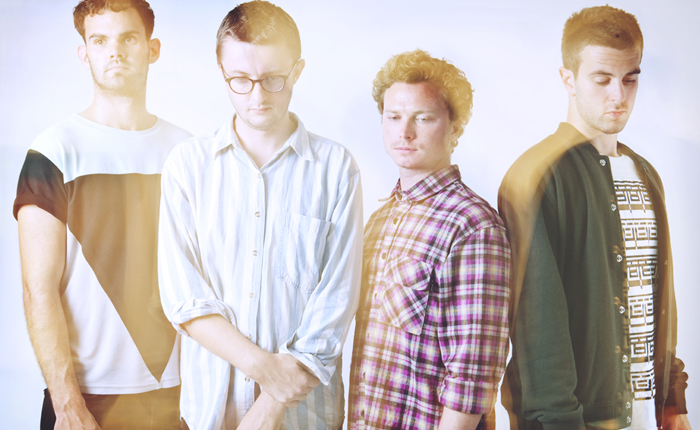Portico Quartet [Q and A]
BY GEORGE TOWNSEND
FRIDAY, 18TH OCTOBER 2013
Portico Quartet are a group who have always defied categorization. Formed in London in the mid-Noughties, their sound was at first a kind of groove-based jazz, recognizable in part for their use of the Hang drum. They earned their stripes playing to the audiences of smaller venues in the capital, and to passersby as they busked on the Southbank, until their first LP Knee-deep In The North Sea won them a Mercury Prize nomination in 2008. Then they began to explore, both touring more widely and developing their style. Their critically acclaimed third and self-titled album, released early last year, marked a compelling departure from their original sound as they began to experiment with the rhythms and textures at the cutting-edge of dance music. At the moment they’re playing a series of intimate gigs, having had a jam-packed Summer of festivals and club venues.

On your latest album, the acoustic elements of your previous output are intertwined with more electronic and ambient sounds for the first time. Was this the result of a concerted effort to reinvent yourselves as a band, or was it more of a natural progression?
bit of each really, we'd been listen to a lot more electronic and ambient music but we'd also started playing to much older seated crowds that we didn't feel that connected too. So when we made the last album there was definitely an attempted to move our music away from those audiences and venues towards a younger vibeier crowd. We started pushing the bottom end much harder and used a lot of electronic kicks and drums to toughen up the sound, treated the sax quite heavily and started incorporating synthesisers.
On the track 'Steepless' from your last record you featured a singer, Cornelia, and Cornelia has also performed live with you. What is it like working with her? Did you feel that having words involved in your music for the first time was a big moment for you as a band?
Yea, that tune came together very quickly, was very easy. It did feel like a big move as we'd always had the top lines on sax but changing the textures and instrumentation around was something we were aiming for because of the reasons above. The album we're working on at the moment features vocalists quite heavily and making that tune gave us a bit of confidence to move down that path.
Your latest album was self-produced, like your first. What prompted this and how democratic was the production process between the four of you?
Its just that the production was getting so integrated to the sound. A lot of the effects are done through effects pedals, I think a lot of what sounds like studio production stuff was actually done live. But yea it was important that we did it on the latest album as it was such a part of our sound.
Over this last year you've played a huge variety of gigs, from Croatian dance festivals like Outlook and Dimensions, to club-venues like Koko, and you're now playing a series smaller, more intimate gigs in places like the Newman Rooms in Oxford. What are the pros and cons of this kind of diversity, and is it something you'd like to maintain in the future?
It’s a bit of an internal debate. I really like playing smaller more intimate venues, i think 300 it the perfect size for our music and that its not always about doing bigger gigs, I think there’s an intimacy to our music that gets lost on a bigger stage. There is something to playing on big systems, especially if the bottom ends really good, that you can't get at smaller venues, its a much more physically experience I suppose.
How has the response of crowds to your music developed since your first album?
The crowds now are a lot younger and much more lively. It more cheering and head nodding than polite clapping toe tapping.
How has the role of improvisation developed in your live shows?
Part of our revamp with the latest and in this new album we're working on has been to reduce the role of improvisation as solos and move more towards a group improvisation. We've improvising with texture more than virtuosic lines
What can we expect from Portico Quartet in the future?
We'll hopefully the new album will come out at some point next year. We've made about half of it so far, there’s a lot more collaborative stuff on it and not much sax, it will sound quite different from anything we've done before.
By George Townsend
To see the bands tour dates, have a look here: http://www.porticoquartet.com
'Ruins' by Portico Quartet.